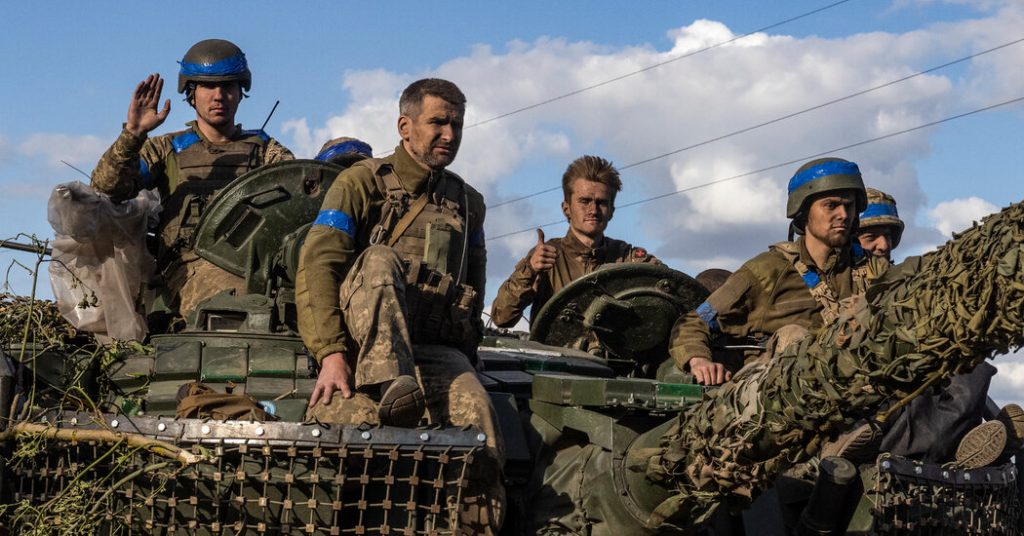The capture of two North Korean soldiers in Russia by Ukrainian forces marks a significant development in the ongoing conflict, representing the first instance of North Korean troops being taken alive since Pyongyang’s deployment of military personnel to bolster Moscow’s war effort. President Volodymyr Zelensky confirmed the capture, stating that the two wounded soldiers were apprehended in the Kursk region of western Russia, a strategically important area where Ukrainian troops have been engaged in fierce battles to defend territory seized during a cross-border incursion last summer. Following their capture, the soldiers received medical treatment in accordance with the Geneva Conventions and were subsequently transported to Kyiv, the Ukrainian capital, for interrogation. This incident underscores the complex interplay of international actors in the conflict and raises critical questions regarding the extent of North Korea’s involvement and the potential implications for regional stability.
The Ukrainian Security Service (SBU), the country’s domestic intelligence agency, provided additional details regarding the capture, revealing that one of the soldiers was apprehended on Thursday. While the SBU refrained from disclosing the specific location or timing of the second soldier’s capture, it emphasized the significance of the event, characterizing them as the first North Korean combatants captured alive in the Kursk region. The SBU further indicated that interrogations are underway, facilitated by Korean translators working in collaboration with South Korea’s intelligence service, highlighting the international collaborative efforts to gather intelligence and understand the dynamics of the conflict. This cooperative approach underscores the importance of international collaboration in addressing the complexities of the conflict and the shared interest in understanding the role of external actors, such as North Korea.
The capture of the North Korean soldiers and their subsequent interrogation hold significant intelligence value, offering potential insights into North Korea’s strategic objectives in supporting Russia’s war effort, the operational dynamics of their deployment, and the overall impact of their involvement on the conflict’s trajectory. The information gleaned from these interrogations could prove crucial in shaping future diplomatic and military strategies, as well as informing international efforts to address the wider geopolitical implications of North Korea’s engagement in the conflict. The incident also raises concerns about the human cost of the conflict, particularly for North Korean soldiers deployed far from home and facing difficult conditions on the front lines.
The public dissemination of images and videos of the captured North Korean soldiers by President Zelensky and the SBU raises important considerations regarding the treatment of prisoners of war and compliance with international humanitarian law. While the Geneva Conventions mandate the protection of prisoners of war from public curiosity and exploitation, the release of such materials can be interpreted as a violation of these principles. The balance between transparency and the protection of individual dignity in the context of armed conflict is a complex issue with ethical and legal ramifications. The decision to publicize images of the captured soldiers may reflect a calculated move by Ukrainian authorities to highlight North Korea’s involvement in the conflict and potentially exert pressure on Pyongyang.
The backdrop of this incident is the intense fighting in the Kursk region, a critical area where Russian forces, reinforced by a substantial contingent of over 11,000 North Korean soldiers, have been attempting to reclaim lost territory and repel Ukrainian advances. While Russian forces have managed to recapture roughly half of the territory previously lost, Ukraine has staunchly defended a significant portion of land within Russia, amounting to more than 150 square miles. The presence of North Korean troops in the region has been a source of concern for international observers, with reports of heavy casualties among their ranks, including instances of suicide rather than surrender, according to reports from the White House. The Biden administration has also stated that over 1,000 North Korean soldiers have been killed or wounded in the fighting in Kursk over a single week.
The involvement of North Korean troops in the Ukraine conflict adds another layer of complexity to an already intricate geopolitical situation. It highlights the evolving alliances and partnerships in the context of the war and raises concerns about the potential for escalation and wider regional instability. The capture of these two soldiers provides a rare window into the on-the-ground realities of North Korea’s participation in the conflict and underscores the human cost of war, even for those fighting far from their homeland. The international community will undoubtedly scrutinize the treatment of these captured soldiers and the information gleaned from their interrogations, as these developments could have significant implications for the ongoing conflict and the broader geopolitical landscape.


